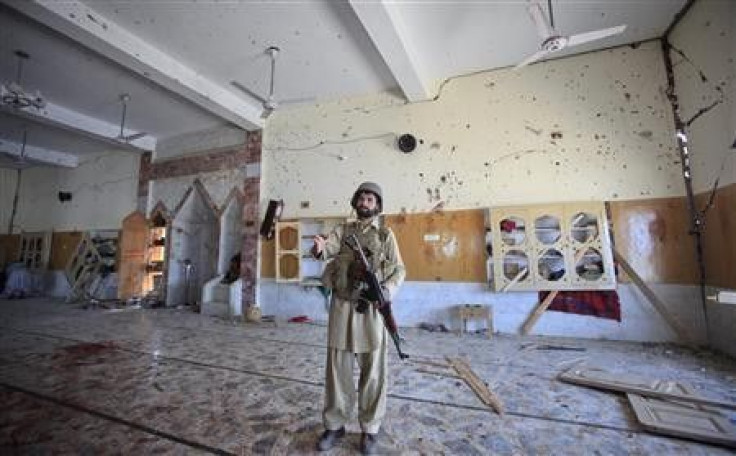Suicide Bomber Kills at Least 47 in Pakistan

A teenage suicide bomber blew himself up among worshippers offering Friday prayers at a mosque in northwest Pakistan, killing at least 47 people and wounding more than 70, a top government official said.
No one claimed responsibility for the attack in Jamrud, a main town in Khyber, but officials suspected Taliban militants who have been active for past years in the tribal region that shares border with Afghanistan.
Officials earlier said 34 people had been killed.
Many of the wounded succumbed to their injuries, adding to the toll that may rise further as there are still people in critical condition, region's top government administrator Mutahir Zeb said.
Zeb said the attack was carried out by a teenage boy who struck when worshippers were offering prayers.
The mosque is located in an area inhabited by Kokikhel tribesmen, who are opposed to Taliban activity and have been fighting to push them out of their region. The blast could be a reaction to that, Zeb said.
Earlier, another senior official said about 20 bodies were brought to two hospitals, while relatives took others directly to their homes.
A witness, Haji Zarmeen, said he helped removed at least 12 bodies from the rubble.
TV footage showed blood on the walls and ceiling of the mosque as people collected clothes and sandals scattered by the blast.
Pakistan has seen a wave of violence in recent years in which thousands of people have been killed.
There have been several bomb attacks since U.S. special forces killed al Qaeda chief Osama bin Laden in a secret raid in a Pakistani town in May.
Al Qaeda-linked militants have vowed to avenge bin Laden's death.
Pakistani troops have carried out several operations against the militants, but they have shown resilience and have responded with a campaign of suicide and bomb attacks across the country.
Since bin Laden's death, Washington has stepped up pressure on Pakistan to go after militants, using its border sanctuaries to attack U.S. forces in Afghanistan.
It has also intensified its campaign of drone attacks in Pakistan's northwest.
A U.S. drone fired two missiles at a house in the South Waziristan tribal region on the Afghan border, killing four suspected militants on Friday, local intelligence officials said.
Drone strikes have been a major source of friction between the United States and Pakistan. Ties have deteriorated since the death of bin Laden in the attacks which Pakistan sees as a violation of its sovereignty.
Pakistan's largest city and commercial hub Karachi also suffered from violence, with criminal, political and ethnic mayhem entering a third day. At least 55 people have been killed since Wednesday, police said.
Seven people were killed on Friday in violence that started as gang warfare, but has since expanded to include political and ethnic clashes -- a phenomenon that has long plagued the city of more than 18 million.
© Copyright Thomson Reuters 2024. All rights reserved.











